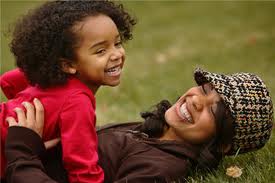
Power is what one person has over another. Power gives the power to control, dominate, coerce, bend to one’s will, make other do what you want them to do. This is the type of authority people almost always have in mind when they wish that children would “respect” adult authority, or when they talk about a “breakdown in authority” in families or schools, or when they want children to be “obedient to authority”, or when they complain that kids today are “rebelling against authority”. When children are younger the parents have and wield a lot of power over their children.
Parents are meant to hold a certain amount power over their children. However sometimes parents turn the P in the parenting to a power tussle. As parents there is the idea that you hold all the power and therefore you are to mould, cajole, force, discipline and teach the child how to behave according to what you think is the best for the child. When the child is young, parents have all the indisputable power and wield it over their children using a few common methods.
- Request and Reward – Parents use a disproportionate amount of request and reward cycles (aka R & R) to get things done. If you want a young child to eat vegetables you might dangle a favorite candy to entice the child to finish up the green peas for a sip of juice. If you want a child to share his or her toys you might offer a reward if he or she will share their toys. As children get older it is best that the request and reward cycles reduce as the child should increasingly be taught to understand why certain requests are made from him or her. As understanding grows R & R should reduce.
- Emotional – On the emotional side parents can make a child feel bad if he or she does not behave as you intend. Parents pretend to cry, or show such displeasure by uttering the famous phrase “I am not your friend” as an emotional punishment. Parents hope this will result in the child behaving in the matter they wish or at least teaching the child that the particular action is not encouraged. As a child gets older you need to watch that the line is not crossed into emotional abuse. Continuously using emotional blackmail shows that both the parent and the child are not maturing in the right direction. Clear communication should be improving as the child grows such that emotional games are not the only way to get desired actions.
- Withholding – this is another tool parents use as a result of their ability to withhold things or outcomes that the child wants or desires. You can take a favorite toy away from the child. you could refuse to buy a certain item, refuse a play date and other things that you know would (or hope would) get the desired outcome in the child. You could refuse to give a child his or her pocket money until a certain action is done. Withholding as a punishment as a child gets older can cause resentment in the child if not done in the right way, the child could associate power with having material wealth.
- Cajoling – this is yet another item in the arsenal parents can use. Parents are able to cajole and encourage the child to do something. Children generally want to please their parents. so cajoling a child to perform an action you want can be quite effective. The tone of voice and the encouragement can be enough to get a child to do a certain thing. A parents promise of being proud and cheering for a child to take part in a play can be enough to get the child over the hump of being shy in front of the crowd. As children get older there is always a place for parents to cheer for their children and to cajole them into the right behaviour. A child should always want to get the approval of their parents for the right things of course.
Many parents use all these tools quite freely. However depending on the age and temperament of the child there are certain ones that you should use more often than the other. The common factor is that children grow older and become less reliant on parents and less focused on getting approval from the parents. At this stage it is time for the parents to change their strategies as it usually coincides with the time when children start to look at their peers and are exposed to other influences. The strategies that worked as a toddler to pre-teen will surely no longer work as effectively as the child enters the teens.
As your children get older the focus of all interactions should be on mutual respect, communication and living by example as parents.
photo source: profound-parenting


